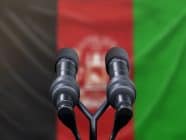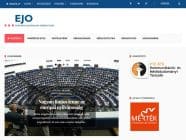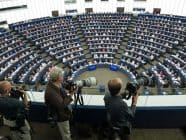The idea of professional autonomy is a cornerstone of the journalistic profession and its limitations are considered detrimental to democracy. Sometimes, reporters find their professional independence constrained by their own news organizations, which have particular political or financial concerns.
A new study published in Journalism that looks at the subject of autonomy in the Danish media found that journalists in Denmark feel they have nearly complete freedom to make important choices concerning their work and the content they produce.
Morten Skovsgaard from the University of Southern Denmark looked at the relationship between the professional goals of reporters and the organizational goals of media companies they work for. Denmark is an interesting case study. On the one hand, the country’s media system traditionally has had a high level of political parallelism manifested in a strong party press. On the other hand, it has been increasingly influenced by commercialization as more outlets seek to be financially profitable.
The study was based on a large-scale survey of 1083 Danish reporters conducted in close cooperation with Danish Union of Journalists. The Union represents some 90-95 % of all Danish journalists working in editorial journalism, excluding those working in PR and those who are unemployed. The sample contained professionals from different media sectors: magazines, daily newspapers, radio and television, and the web.
Journalists’ professional autonomy implies a certain degree of independence in their pursuit of professional goals based on claim to special knowledge and skills as well as shared ideology, especially the idea of public importance of their work. The research delineated three areas of organizational pressures on professional autonomy of reporters: political goals, profit goals, and routines and structures of the organization.
The study selected a set of variables to measure autonomy. The dependent variables were ‘conflict-agreement with superiors’, ‘adjustment to superiors’, and ‘own sense of independent discretion’. ‘Superiors’ referred to editors who could, due to their higher position in organizational hierarchy, wield influence over the decisions of reporters. Independent variables to measure disparity between journalists’ professional goals and goals of media organization were political discrepancy, public service goals (perceived orientation toward public service vs. profit), time limitations and deadlines, and competition with other journalists.
The study has found that overall journalists did feel like they had substantial autonomy and enjoyed the freedom of making important choices. Political discrepancy between reporters and respective organizations did slightly reduce the sense of agreement with superiors and increased sense of conflict, but it did not impede on professional autonomy.
Alternately, the discrepancy in the public service orientation (with organizations leaning toward profit goals) did impact journalists’ sense of autonomy. They felt their freedom to make independent decisions was hindered by organizations’ profit orientation. It also lowered both the sense of agreement with superiors and the feeling of independent discretion while substantially increasing the sense of conflict.
Likewise, time pressures and deadlines caused journalists to feel less autonomous, especially in terms of independent discretion.
The presence of competition with other journalists had no significant impact on the level of agreement with superiors. Neither did it affect the sense of independent discretion. It did, predictably, increase the level of adjustment, for reporters have to meet editor’s expectations in order to sell their stories.
The analysis found that the type of media outlet also had an impact on the experience of professional autonomy. Journalists working at dailies, which are often sold on subscription, experienced less disagreement and adjustment compared to those working in TV, tabloids, weekly magazines, and the web. They also felt most independent among different media types.
Interestingly, there were gender differences observed in the perceived relationship with superiors. Men were found to be more conflictual and adjust less than women. In terms of the length of journalistic experience reporters with more experience also were less inclined toward adjustment. Overall, however, the analysis demonstrated that organizational context (where journalists work) was much more important factor in explaining professional autonomy than personal background (i.e. gender, experience or education).
The study revealed that discrepancy in profit orientation was more important in limiting journalistic autonomy than political differences between reporters and their organizations. Thus, in the context of democratic societies, organization’s commercial and not political aims must be the main concern. Since the study only focused on one country and the perception of professional autonomy varies across national and cultural contexts, further comparative investigations would be worthwhile.
Skovsgaard, Morten (2014): Watchdogs on a leash? The impact of organizational constraints on journalists’ perceived professional autonomy and their relationship with superiors. In Journalism 15(3).
Photo credit: Louis Abate / Flickr Cc
Tags: Denmark, Journalism, journalistic autonomy, Media research, media study, Morten Skovgaard, Research, University of Southern Denmark











































